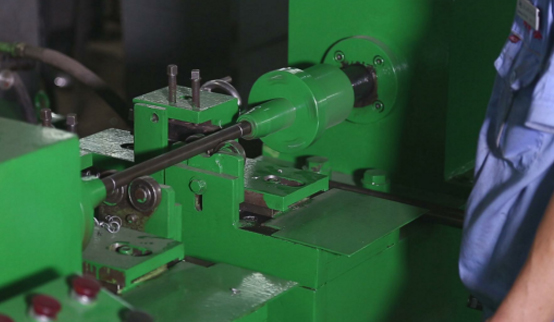 Afrikaans
Afrikaans  Albanian
Albanian  Amharic
Amharic  Arabic
Arabic  Armenian
Armenian  Azerbaijani
Azerbaijani  Basque
Basque  Belarusian
Belarusian  Bengali
Bengali  Bosnian
Bosnian  Bulgarian
Bulgarian  Catalan
Catalan  Cebuano
Cebuano  Corsican
Corsican  Croatian
Croatian  Czech
Czech  Danish
Danish  Dutch
Dutch  English
English  Esperanto
Esperanto  Estonian
Estonian  Finnish
Finnish  French
French  Frisian
Frisian  Galician
Galician  Georgian
Georgian  German
German  Greek
Greek  Gujarati
Gujarati  Haitian Creole
Haitian Creole  hausa
hausa  hawaiian
hawaiian  Hebrew
Hebrew  Hindi
Hindi  Miao
Miao  Hungarian
Hungarian  Icelandic
Icelandic  igbo
igbo  Indonesian
Indonesian  irish
irish  Italian
Italian  Japanese
Japanese  Javanese
Javanese  Kannada
Kannada  kazakh
kazakh  Khmer
Khmer  Rwandese
Rwandese  Korean
Korean  Kurdish
Kurdish  Kyrgyz
Kyrgyz  Lao
Lao  Latin
Latin  Latvian
Latvian  Lithuanian
Lithuanian  Luxembourgish
Luxembourgish  Macedonian
Macedonian  Malgashi
Malgashi  Malay
Malay  Malayalam
Malayalam  Maltese
Maltese  Maori
Maori  Marathi
Marathi  Mongolian
Mongolian  Myanmar
Myanmar  Nepali
Nepali  Norwegian
Norwegian  Norwegian
Norwegian  Occitan
Occitan  Pashto
Pashto  Persian
Persian  Polish
Polish  Portuguese
Portuguese  Punjabi
Punjabi  Romanian
Romanian  Russian
Russian  Samoan
Samoan  Scottish Gaelic
Scottish Gaelic  Serbian
Serbian  Sesotho
Sesotho  Shona
Shona  Sindhi
Sindhi  Sinhala
Sinhala  Slovak
Slovak  Slovenian
Slovenian  Somali
Somali  Spanish
Spanish  Sundanese
Sundanese  Swahili
Swahili  Swedish
Swedish  Tagalog
Tagalog  Tajik
Tajik  Tamil
Tamil  Tatar
Tatar  Telugu
Telugu  Thai
Thai  Turkish
Turkish  Turkmen
Turkmen  Ukrainian
Ukrainian  Urdu
Urdu  Uighur
Uighur  Uzbek
Uzbek  Vietnamese
Vietnamese  Welsh
Welsh  Bantu
Bantu  Yiddish
Yiddish  Yoruba
Yoruba  Zulu
Zulu Durable Plastic Bearing Housing for High Performance Applications
The Benefits and Applications of Plastic Bearing Housings
In the world of engineering and manufacturing, the choice of materials plays a crucial role in the performance and longevity of mechanical components. Among these, plastic bearing housings have emerged as an innovative solution, providing several advantages over traditional metal housings. This article explores the benefits, applications, and considerations surrounding plastic bearing housings.
Advantages of Plastic Bearing Housings
One of the most significant advantages of plastic bearing housings is their lightweight nature. Compared to metal alternatives, plastic housings can significantly reduce the overall weight of machinery and equipment. This reduction in weight is particularly beneficial in industries such as aerospace and automotive, where fuel efficiency and performance are paramount.
Another advantage is the corrosion resistance that plastic materials inherently provide. Metals can corrode when exposed to moisture, chemicals, or harsh environments, leading to premature wear and failure. Plastic bearing housings, on the other hand, can withstand these adverse conditions without deterioration, making them ideal for applications in chemical processing, food production, and outdoor machinery.
Plastic housings also offer excellent insulation properties. In electrical applications, this characteristic can prevent short circuits and protect sensitive components from electrical interference. Moreover, plastics can operate effectively across various temperature ranges, maintaining structural integrity in both low and high temperatures.
Applications in Various Industries
plastic bearing housing

Plastic bearing housings are utilized in a diverse array of industries. In the automotive sector, lightweight components contribute to improved fuel efficiency and performance while reducing wear on engine and transmission parts. In the food and beverage industry, the non-corrosive nature of plastics makes them suitable for use in environments where sanitation is critical, such as conveyor systems that transport food products.
Furthermore, plastic bearing housings find their applications in medical devices, where hygiene and material compatibility with bodily fluids are essential. They are also highly regarded in the manufacturing of household appliances, where low noise operation and durability are of utmost importance.
Considerations and Future Trends
While plastic bearing housings provide numerous benefits, it is crucial to consider the specific requirements of each application. Factors such as load capacity, operating environment, and potential exposure to specific chemicals must be assessed to ensure that the selected plastic material is suitable.
As technology advances, the development of high-performance plastics continues to expand the potential applications of plastic bearing housings. Innovations in material science may lead to composites that combine the lightweight and corrosion-resistant properties of plastics with the strength of metals, offering even greater performance.
In conclusion, plastic bearing housings present an excellent alternative to traditional metal options, boasting advantages such as reduced weight, corrosion resistance, and excellent electrical insulative properties. Their applicability across various industries underscores their versatility and potential for the future. As engineers and manufacturers increasingly prioritize sustainability and efficiency, the role of plastic bearing housings is likely to grow, paving the way for enhanced designs and improved performance in mechanized systems.
-
Revolutionizing Conveyor Reliability with Advanced Rubber Lagging PulleysNewsJul.22,2025
-
Powering Precision and Durability with Expert Manufacturers of Conveyor ComponentsNewsJul.22,2025
-
Optimizing Conveyor Systems with Advanced Conveyor AccessoriesNewsJul.22,2025
-
Maximize Conveyor Efficiency with Quality Conveyor Idler PulleysNewsJul.22,2025
-
Future-Proof Your Conveyor System with High-Performance Polyurethane RollerNewsJul.22,2025
-
Driving Efficiency Forward with Quality Idlers and RollersNewsJul.22,2025





























